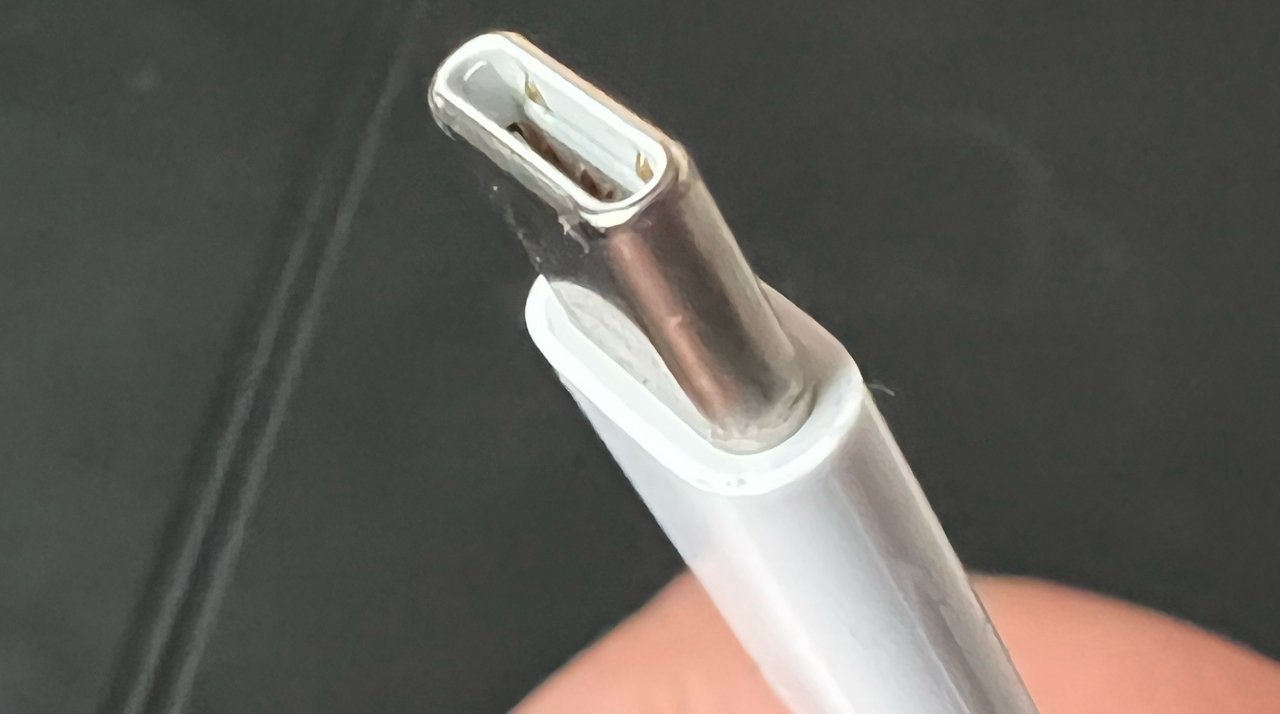Apple isn't happy about India's demand to upgrade older iPhones with USB-C
Apple has urged the Indian IT ministry to make changes to its single charger rules, as adding USB-C to older iPhone models will make it hard for Apple to meet production targets for India's manufacturing and export laws.

A USB-C cable
Following after the European Union's introduction of regulations that will force electronics producers to use USB-C as part of a common charger directive, India followed suit with its own variation of the mandate. However, Apple is one of the few companies pushing back on its implementation.
Apple met with India's IT ministry in a closed-door meeting on November 28, reports Reuters, asking officials to add exemptions to the rules for some older models of iPhone.
While the EU's rules effectively apply only against newly designed and released products after the rules come into force in 2024, India's version does not. Instead, it applies to all electronic devices sold in the country, which also includes hardware that wasn't previously designed with USB-C.
To Apple, this wrinkle means it would have to incorporate USB-C into the designs of older Lightning-equipped iPhone models to continue selling them in India.
Apple told the regulators that implementing the changes would mean it won't be able to "meet the PLI targets," minutes from the meeting state. PLI, India's Production-Linked Incentive scheme, is a major project of Prime Minister Narendra Modi, providing manufacturers with financial incentives for investments and incremental annual phone sales.
The use of USB-C in the iPhone 15 means Apple meets the criteria for the rules with its current-gen hardware. However, the bulk of its sales in India are based around older iPhone generations.
Apple says it can comply with a timeline for compliance by June 2025 if existing models are exempted from the rules. Otherwise, it would need another 18 months beyond 2024 if there isn't an exemption.
Read on AppleInsider

Comments
The same reasoning applies here. If the product is already approved, manufactured and available in the market, I think it's unreasonable to make Apple retrofit USB-C to the design.
However, laws are there to be complied with so imagine this particular change can be made with less impact for Apple than it would have us believe.
I hope Apple is able to persuade the government here (and that any concessions are made available to other manufacturers in a similar position).
That's the very reason why Apple chose to go with Lightning instead of USB in the first place. And boy did people complain about the switch from Dock to Lighting at the time! Now suddenly everyone is fine with buying all new USB-C accessories because Android users and governments are cheerleading USB-C. Gimme a break!
Consumers still have to navigate the variations of power and bandwidth, and USB.ORG's nomenclature doesn't help. What will end up happening, is that Apple users will flock to the 100W/5A PD and 10Gbps, because, why take a chance?
The EU directive at least, applies to far more devices than phones. An entire industry will be harmonised and one of the reasons the EU chose the route it did was precisely because of Apple not doing its bit after the original MoU all those years ago.
I currently have a wide range of charging interfaces at home and very few are interchangeable even if some of them might actually be official standards and not proprietary connectors. For example the Simple Human dispenser and the Philips One Blade.
The EU also wants to tackle labeling to make things easier for consumers.
At some point, wireless charging might also need to be dealt with too and Apple is now actively contributing to future wireless specs.
Voilà !
Oh, and the current USB-C mandate doesn't actually take effect until the 28th of this month; Apple made it with months to spare.
Of note, Apple would still be in compliance with the EU mandate sans a charging port given that all of its current models support MagSafe/Qi.
Apple did not 'comply'. It didn't implement micro USB. From the EU's perspective, it was part of the problem of fragmentation. Lightning was impeding harmonization (along with plenty of other connectors).
Oh well.
The next time around, and following all the relevant impact assessments, the EU decided to legislate (concluding not enough had been achieved 'voluntarily' over the years), but this time the net was spread wide to cover far more devices than just phones.
Apple had no option but to fall in line.
Wireless was deliberately left out this time around but specifically mentioned, so if we see industry pulling in different directions on that front we can fully expect that to be legislated.